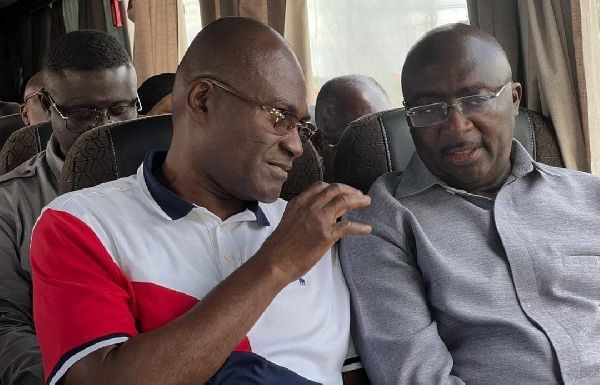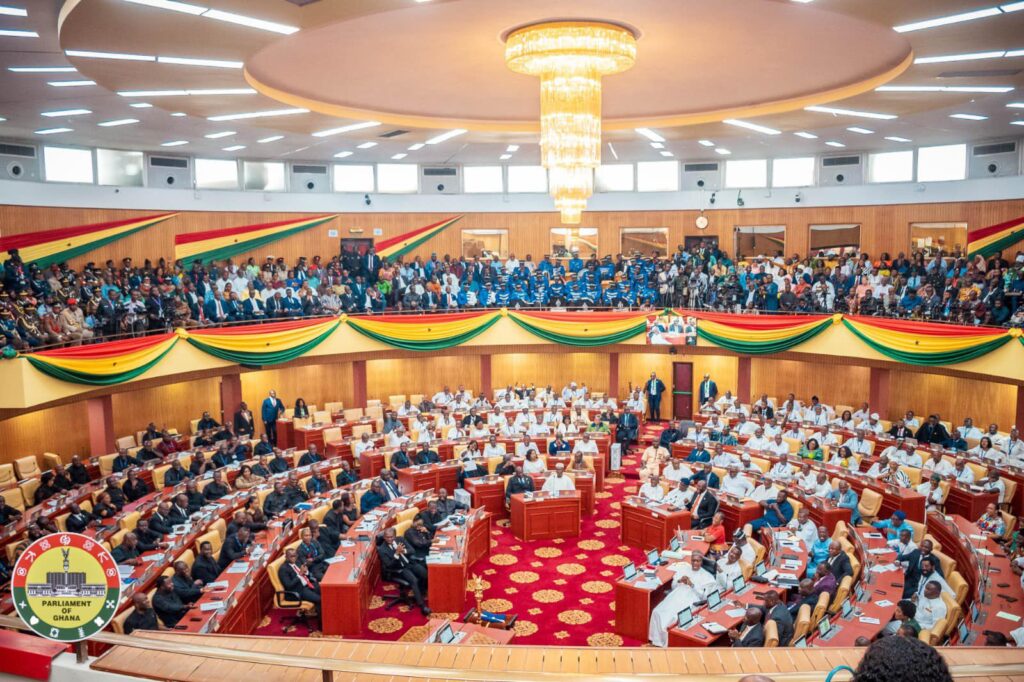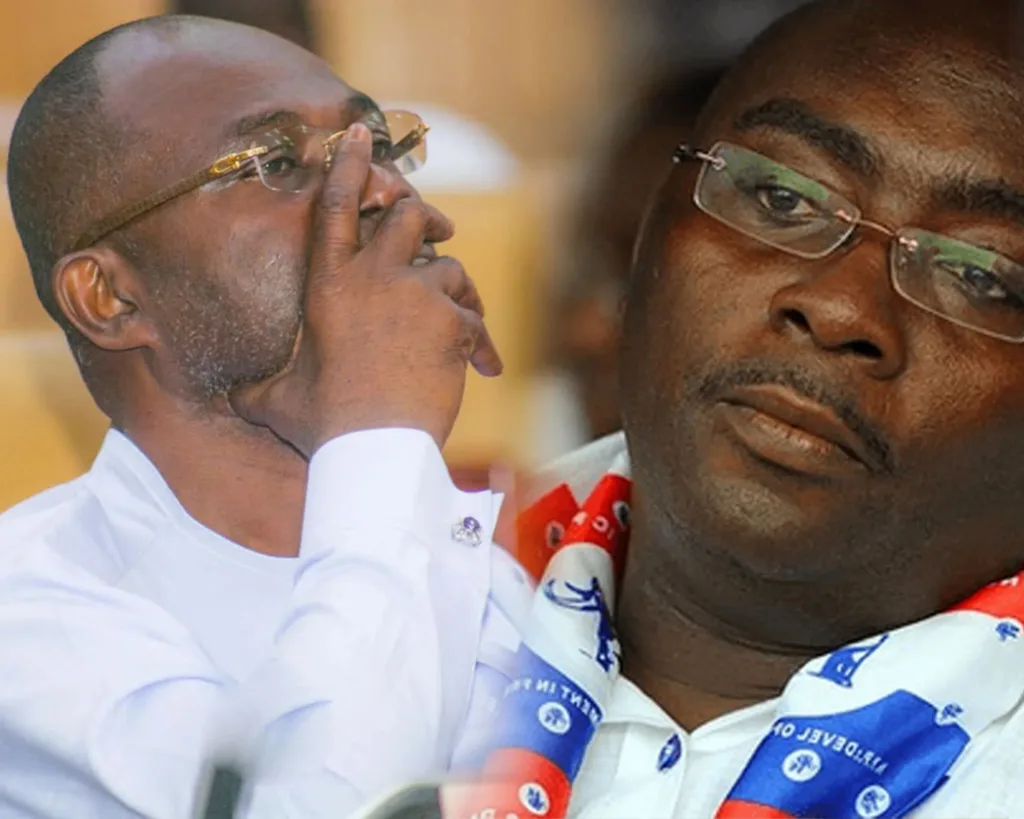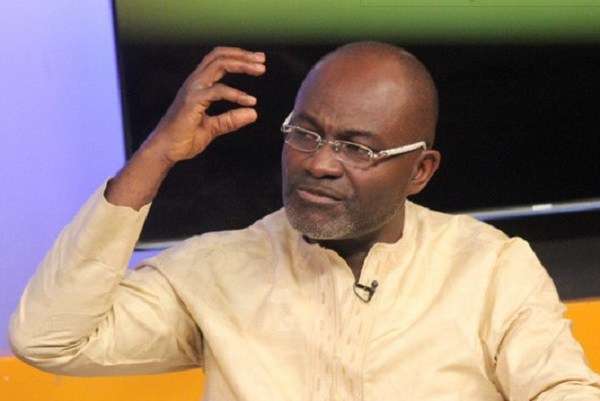Agyapong Challenges IMF-Dependent Economic Plans
New Patriotic Party (NPP) flagbearer hopeful Kennedy Agyapong has injected fresh energy into the race by questioning whether Ghana’s future should be anchored in yet another International Monetary Fund (IMF) programme.
In a strongly worded social media statement, Agyapong declared that any leader whose economic vision begins with negotiations in Washington, D.C. has “already failed.” He argued that Ghana’s persistent reliance on external bailouts reflects a leadership deficit rather than an unavoidable necessity.
His comments were not made in a vacuum. Ghana’s recent $3 billion IMF support package, signed in 2023, is the country’s 17th programme with the Fund since independence in 1957. This cycle of borrowing and reforms has sparked ongoing debate about Ghana’s ability to stand on its own economically.
Table of Contents
Rivalry Within the NPP

Although Agyapong did not name his rivals, political observers interpret his remarks as a veiled critique of Vice President Dr. Mahamudu Bawumia. The Vice President, who also seeks to lead the NPP into the 2028 elections, has long been associated with the party’s Economic Management Team and the current IMF negotiations.
Other aspirants within the NPP have emphasised stabilising the economy through continued IMF partnership. Agyapong, however, has chosen to brand himself as the candidate of independence, seeking to appeal to voters frustrated by the recurring pattern of bailouts followed by austerity.
This internal contest highlights how Ghana IMF dependency is becoming a central theme in the NPP flagbearer race, with candidates forced to articulate where they stand on the balance between external support and homegrown solutions.
A Blueprint for Economic Self-Reliance
Agyapong’s rhetoric is consistent with his persona as a businessman and industrialist. He has consistently advocated for policies that strengthen domestic industries, arguing that local manufacturing and job creation are the only durable solutions to Ghana’s economic challenges.
“My vision is to build an economy so self-reliant and powerful that the IMF becomes irrelevant to our national conversation,” Agyapong wrote.
His proposals, though still broad in outline, include:
Aggressive domestic investment: Prioritising support for Ghanaian businesses to compete globally.
Job creation through local production: Reducing imports by boosting local factories in agriculture, textiles, and technology.
Fiscal discipline: Curbing excessive government borrowing and spending, which often lead to unsustainable debt levels and IMF bailouts.
By framing his candidacy around breaking free from Ghana IMF dependency, Agyapong aims to stand out as the only aspirant offering a long-term plan for self-sufficiency rather than short-term crisis management.
Historical Echoes of IMF Dependency

Ghana’s relationship with the IMF has been long and complicated. The country first turned to the Fund in the mid-1960s after facing balance-of-payment crises. In the 1980s, under the Provisional National Defence Council (PNDC), Ghana embraced the IMF’s Economic Recovery Programme, which stabilised the macroeconomy but also introduced austerity measures that left many citizens struggling.
Decades later, Ghana has returned to the Fund multiple times, often citing unsustainable debt and inflation as triggers. Each cycle has been accompanied by public debates over sovereignty, self-reliance, and the social costs of externally imposed reforms.
Today, as ordinary Ghanaians deal with rising costs of living and limited job opportunities, the conversation about breaking away from IMF reliance is resurfacing with new urgency. Agyapong’s messaging taps directly into this historical frustration.
Implications for Ordinary Ghanaians
For households, the debate is more than political rhetoric. IMF programmes often come with strict conditions: cuts in subsidies, wage freezes, or higher taxes. While these measures aim to restore fiscal balance, they typically burden citizens in the short term.
Agyapong’s promise of economic self-reliance resonates with people who feel squeezed by inflation, electricity tariffs, and the cost of imported goods. His critics, however, argue that achieving such independence requires years of structural reforms and cannot be realised overnight.
For young job seekers in particular, the question is whether self-reliance can translate into new industries and employment opportunities or whether Ghana will remain caught in cycles of austerity dictated by international lenders.
Shaping the NPP Race

The NPP’s flagbearer contest, scheduled in the coming years ahead of the 2028 general elections, is fast becoming a referendum on Ghana IMF dependency. Candidates will likely face pressure not only from within their party but also from the general public to clarify how they would manage debt, inflation, and external financing.
Agyapong’s confrontational tone ensures that IMF reliance will remain at the centre of the debate. His rivals may be compelled to defend the current government’s engagement with the Fund or propose alternative routes to growth.
Takeaway: The Real Question for Ghana’s Future
As the political season intensifies, the core question for Ghanaians is straightforward: Can the country realistically escape IMF dependency, or is the Fund an inevitable partner in times of crisis?
Agyapong has drawn a bold line in the sand, positioning himself as the candidate of self-reliance. Whether voters believe this vision is achievable or merely aspirational will determine how the debate unfolds and, ultimately, how economic policies shape daily life in Ghana.
For now, the issue of Ghana IMF dependency is no longer just an economic concern. It has become a defining theme of the nation’s political future.
Read also: Government Confirms Bold Merger Between AirtelTigo and Telecel Ghana Amid Heavy Losses

